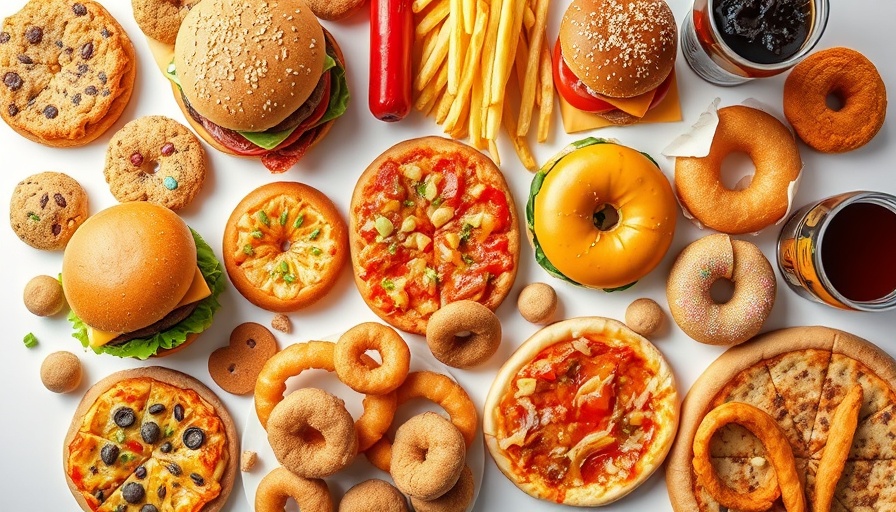
The Impact of Ultraprocessed Foods on Health
In recent years, the consumption of ultraprocessed foods (UPFs) has escalated, raising alarms among health professionals about their potential risks to our health. Defined by their low nutritional quality and high levels of saturated fats, added sugars, and sodium (often referred to as HFSS), these foods contribute significantly to various chronic health issues, including obesity, heart disease, and Type 2 diabetes. A new Science Advisory from the American Heart Association sheds light on this pressing topic, examining the adverse health outcomes linked to UPFs and proposing measures to mitigate their impact.
Connecting Consumption with Chronic Illnesses
Data has shown that as consumption of ultraprocessed foods rises, so do the rates of chronic health problems, particularly in lower-income communities where access to healthy foods may be limited. Observational studies establish a clear correlation between high UPF consumption and increased risks of cardiovascular diseases and mortality. Given that these diets often lack essential nutrients while delivering excess calories, they pose a threat to public health.
Understanding the Confusion Around UPFs
Not all ultraprocessed foods are created equal. While many of these products are indeed unhealthy, some may have a positive nutritional profile and can fit within a balanced diet. For example, certain whole grains and low-sugar plant-based items fall into the UPF category but offer valuable nutrients. This confusion underscores the necessity for clear dietary guidelines and better research to help the public make informed choices.
Future Implications and Dietary Recommendations
Experts advocate for a multifaceted approach to address the UPF dilemma. This includes not only refining dietary guidelines but also enhancing research on how these foods specifically affect our health. There’s a call for more evidence-based policies to regulate food technologies and additives that may pose health risks. Equally important is the role of education; equipping consumers with knowledge about healthy eating habits can empower them to make better choices.
Actionable Tips for Healthier Choices
Transitioning to a healthier diet needn’t be overwhelming. Here are some practical steps to minimize ultraprocessed food intake:
- Read Labels: Familiarize yourself with food labels and identify UPFs high in sugar, salt, and unhealthy fats.
- Cook at Home: Preparing meals from scratch allows you to control ingredients and promote healthier choices.
- Opt for Whole Foods: Incorporating more fruits, vegetables, whole grains, and nuts can boost your nutrient intake while reducing reliance on UPFs.
Engaging Your Community for Change
As we navigate the complexities of dietary health, community engagement plays a vital role. Outreach programs that educate about nutrition, cooking classes, and access to fresh produce can contribute to a collective shift away from ultraprocessed foods. Local initiatives that raise awareness and provide resources can enhance public health and foster a healthier environment.
Why This Matters
Understanding the implications of ultraprocessed foods goes beyond personal health; it influences community well-being and healthcare systems as a whole. By adopting healthier lifestyle habits and advocating for community support, individuals can make a significant impact on public health.
Consider the importance of your health and the well-being of those around you. Engage with your community, share knowledge, and participate in initiatives that promote better dietary choices. Let’s shift together towards healthier habits, inspiring each other to thrive!
 Add Element
Add Element  Add Row
Add Row 



Write A Comment